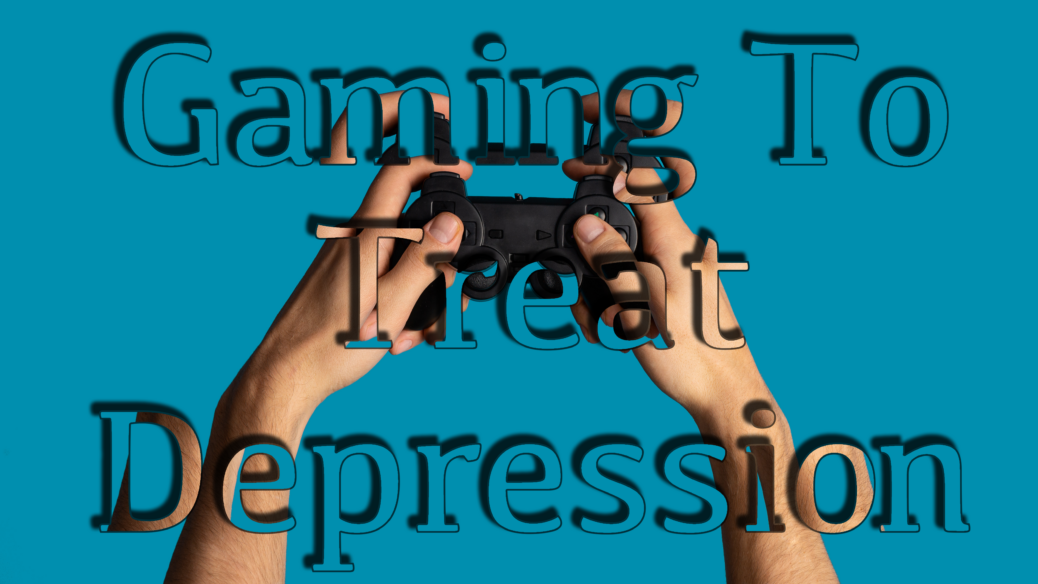Game Over Depression: The Surprising Way Games Can Help With Self-Care
Introduction
When you’re thinking about leveling up your self care, I bet you didn’t consider reaching for your Switch controller.

The millions of people who struggle with depression are all trying to find the right combination of treatments and support to navigate those gloomy days. Research is being conducted on many different techniques and treatments to add on to traditional treatments like therapy and antidepressants. One interesting new avenue of research is in using video games to help manage depression.
Video games aren’t just about fun and entertainment. The game mechanics in video games just might help us with self-care and mental health treatment for depression. In this article, we’ll share all the different ways people are using video games to help support their depression treatment.
Gamification of Self-Care
Gamification is when elements of games are added to an activity or routine to help make it more engaging or enjoyable to do. The gamification of self-care has become increasingly popular in recent years, with apps and platforms designed to help individuals improve their well-being through game-like mechanisms. For example, one study found that many participants were able to stop smoking after using a mobile app game that used psychology principles to help boost motivation and empowerment.1

Here are examples of apps that use gamification to help with self-care and depression symptoms:
- Finch: Finch is a self-care widget and pet app that provides reminders for mindfulness exercises, hydration, and breaks. By incorporating gamification elements, Finch encourages users to engage in self-care practices regularly.
- Plant Nanny Water Tracker Log: This app gamifies drinking water by allowing users to grow virtual plants that thrive when they drink enough water. This playful approach promotes hydration habits and reminds users to care for themselves.
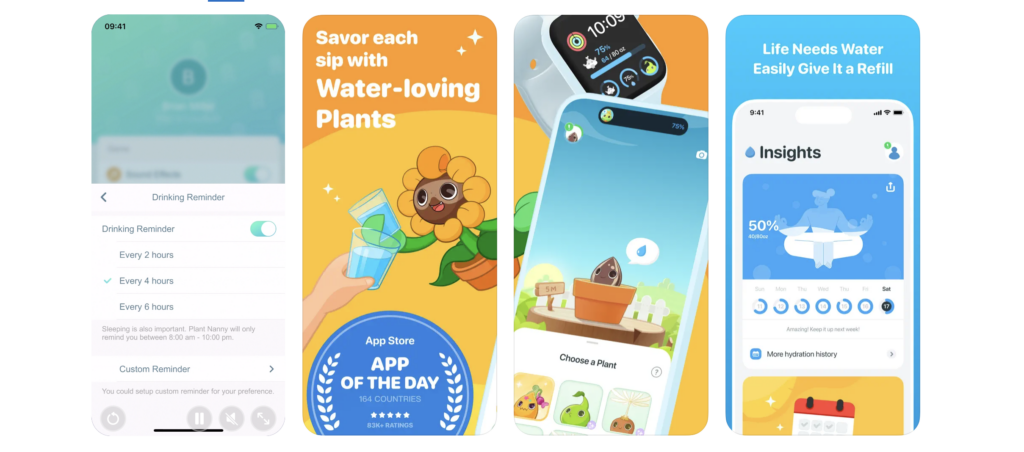
- The Guardians: Developed by the Affective Computing group at MIT Media Lab, this app gamifies self-care by allowing users to create and care for a virtual guardian that represents their emotional state. By nurturing their virtual guardian, individuals can develop self-care habits and gain a better understanding of their emotional well-being.
- Amaru: Amaru is a mobile game focused on helping users develop self-care habits. By adopting a virtual pet, players are encouraged to engage in activities such as exercising, meditating, and maintaining a healthy lifestyle. The game’s playful nature makes self-care approachable and enjoyable.
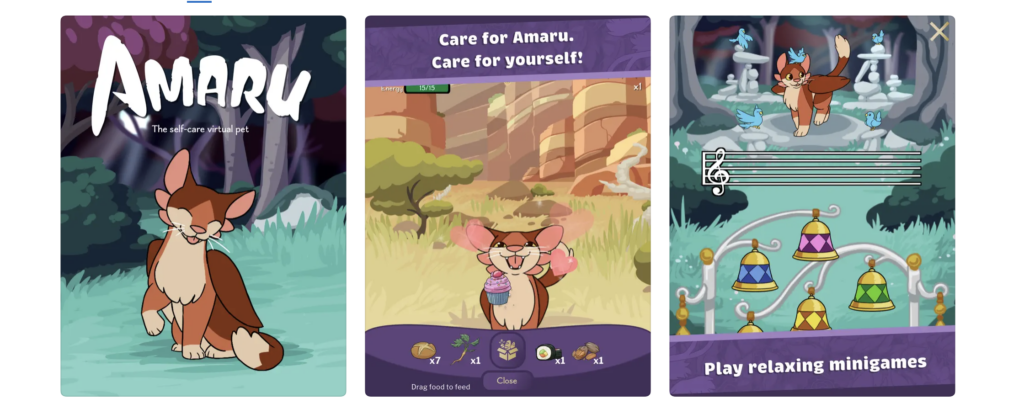
- Fitocracy: Fitocracy is an app that gamifies fitness and wellness by offering online games and social networks to help users stay motivated and improve their health. By tracking their progress, completing challenges, and earning rewards, individuals can turn their wellness journey into an engaging game.
Serious Games Designed Specifically to Treat Depression
Serious games are games specifically designed to address mental health issues, including depression. There have been many studies that have been conducted that have shown promise in supporting people’s well-being and mental health, particularly for depression2.
Here are some examples:
- SPARX: SPARX is a serious game developed to help young people with depression. It uses a virtual therapist and a game-like environment to teach and practice skills like relaxation, activity scheduling, problem-solving, emotion regulation, identifying and replacing negative cognitions, and improving social skills3. In one clinical trial, 44% of young people who played SPARX experienced remission from depression (they were no longer depressed) compared to 26% of people in the treatment-as-usual group (traditional therapy with a therapist)4.
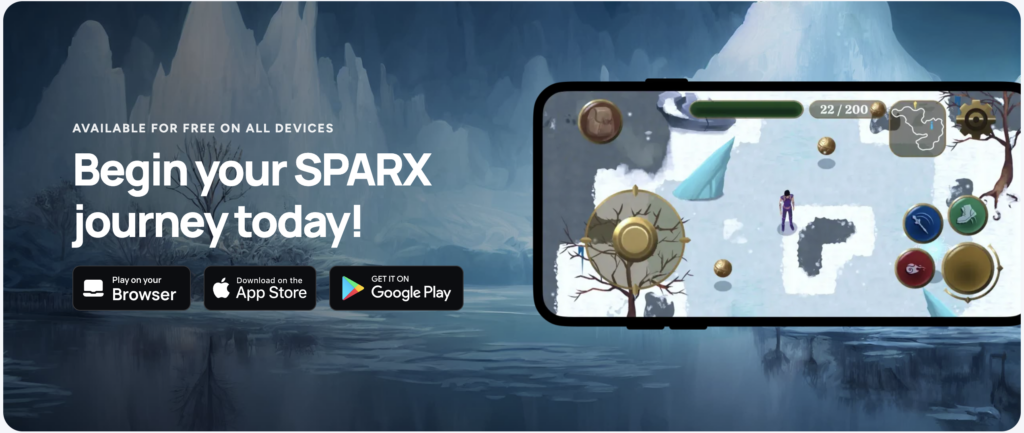
- Deprexis: Deprexis is a serious game that uses artificial intelligence (AI) to interact with players like a live therapist, asking questions and analyzing responses to provide specific feedback and strategies to help manage depression. It’s popular among people who do not have a convenient option for traditional therapy as it is completely online and available 24/75.
While serious games can provide valuable support, they should not replace professional treatment. Seeking guidance from healthcare professionals is important for comprehensive support for the diagnosis and treatment of depression.
Casual/Commercial Games
In addition to serious games, several casual and commercial games have been reported to have mental health benefits.
Lifestyle games like Stardew Valley and Animal Crossing offer a sense of accomplishment and purpose through farming, building relationships, and exploring a virtual world. The game’s calming atmosphere and gameplay can provide relaxation and motivation, making it helpful for individuals with depression6.
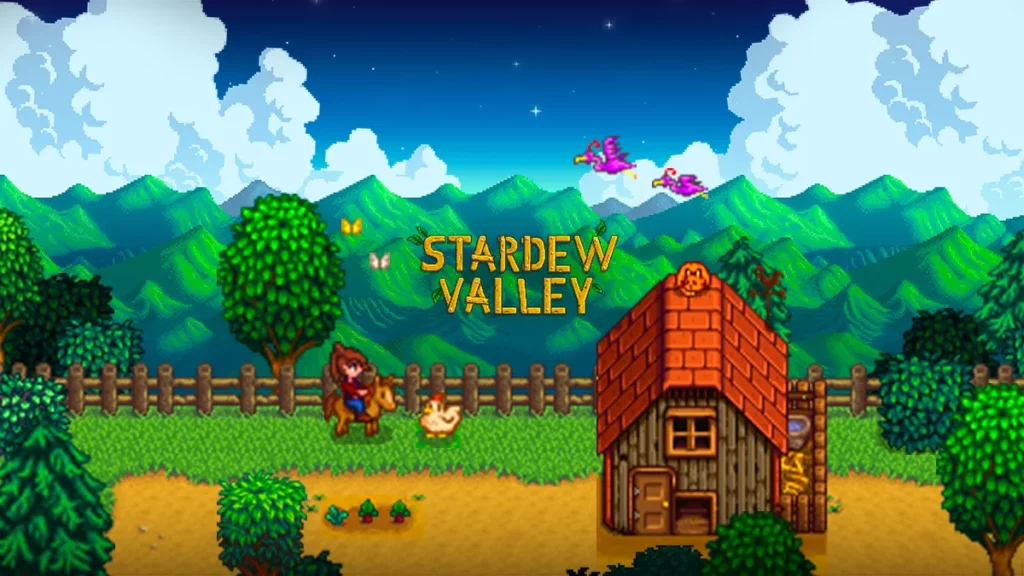
Other games explore alternative difficult themes and offer a different perspective on mental health and the challenging aspects of life. For example, Spiritfarer is a captivating and emotional game about guiding spirits to the afterlife and helping them find peace. With its heartfelt storytelling, the game helps guide the player into exploring themes of loss, grief, and acceptance while finding solace in life’s transitions. It has been praised for taking a sincere and comfortable approach to a heavy topic and has helped many players through loss.
On the other hand, The Last of Us II is a game that also portrays grief and loss, but in a more realistic and raw way. It offers a different perspective on grief to help encourage empathy and see how people grow and change from loss. It also explores the different ways people try to cope with loss. However, this game also incorporates elements of combat and exploring within a post-apocalyptic landscape for players who enjoy this style of gaming more7.
Casual games can provide beneficial effects, but it’s essential to remember that they are not substitutes for professional treatment. Seeking guidance from healthcare professionals is important for comprehensive support for the diagnosis and treatment of depression.
Conclusion:
It is important to remember that video games are still being studied to see if they can be used as complementary tools to depression treatment, not replace professional help. If you or someone you know is experiencing depression, it is important to seek assistance from healthcare professionals who can provide guidance on proper diagnosis and treatment.
Video games, whether through gamification, serious games, or casual experiences, have demonstrated the potential to aid individuals dealing with depression. These games can provide a sense of accomplishment, purpose, relaxation, and emotional support. They show a lot of promise for potentially being a future avenue for depression treatment, so don’t feel too guilty next time you reach for that controller.
Stay informed and receive resources and site updates by subscribing to our Newsletter!
References
- Lin Y, Tudor-Sfetea C, Siddiqui S, Sherwani Y, Ahmed M, Eisingerich AB. Effective behavioral changes through a digital mHealth app: exploring the impact of hedonic well-being, psychological empowerment and inspiration. JMIR mHealth uHealth.2018;6(6):e10024 10.2196/10024
- Kim Y, Hong S, Choi M. Effects of Serious Games on Depression in Older Adults: Systematic Review and Meta-analysis of Randomized Controlled Trials. J Med Internet Res. 2022 Sep 6;24(9):e37753. doi: 10.2196/37753. PMID: 36066964; PMCID: PMC9490522.
- Fleming TM, Gillham B, Bavin LM, Stasiak K, Lewycka S, Moore J, Shepherd M, Merry SN. SPARX-R computerized therapy among adolescents in youth offenders’ program: Step-wise cohort study. Internet Interv. 2019 Oct 20;18:100287. doi: 10.1016/j.invent.2019.100287. PMID: 31890634; PMCID: PMC6926289.
- SPARX, the video game for depression | Behavioral Health Patient Empowerment Challenge. (n.d.). Retrieved from https://behavioralhealth.devpost.com/submissions/17041-sparx-the-video-game-for-depression
- Beevers CG, Pearson R, Hoffman JS, Foulser AA, Shumake J, Meyer B. Effectiveness of an internet intervention (Deprexis) for depression in a united states adult sample: A parallel-group pragmatic randomized controlled trial. J Consult Clin Psychol. 2017 Apr;85(4):367-380. doi: 10.1037/ccp0000171. Epub 2017 Feb 23. PMID: 28230390.
- Farming away the blues: How Stardew Valley helps to deal with mental illness | University Observer. (n.d.). Retrieved from https://universityobserver.ie/farming-away-the-blues-how-stardew-valley-helps-to-deal-with-mental-illness/
- Baxa, J. (2022). Playing through grief with ‘Spiritfarer’ NME. Retrieved from https://www.nme.com/features/gaming-features/playing-through-grief-with-spiritfarer-3166119

